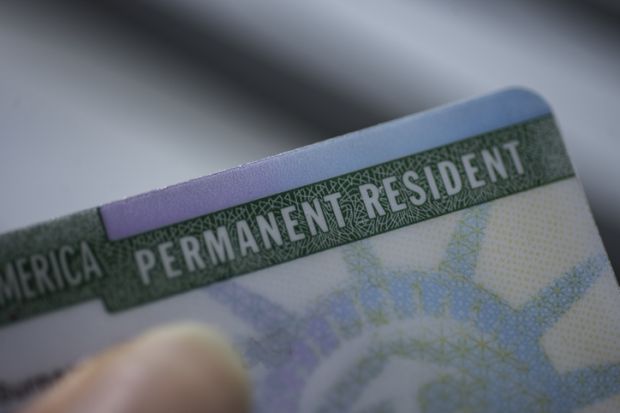In a recent podcast, Donald Trump reacted to an invitation to “promise us that you will give us more ability to import the best and brightest…to America” by saying: “You should get automatically, as part of your diploma, a green card to be able to stay in this country.”
Trump first suggested automatically issuing Permanent Resident Cards (the official name of green cards) to graduates during his successful 2016 presidential campaign, and it became part of the Republican platform. At the time, I thought it was a good way to assure an ample supply of bright young minds for American companies and communities. But it has failed to gain traction: neither the Trump nor Biden administration pursued it. And, on further reflection, I think that is just as well.
Not all of the more than one million students studying in the US hope to stay; many have told me that their preference is to return home. The dream that encourages them to study abroad is to improve their countries and work in fields where their earnings enable them to live better than if they had stayed in more expensive countries.
However, automatically issuing very tempting green cards, providing a pathway to citizenship, could upset this dynamic and denude students’ native countries of their talents – as well as potentially causing tension in the US about immigration levels.
Like other industrialised nations, the US does need to hire more international graduates. Our society is ageing, our birthrate is falling, and our own citizens are choosing not to pursue degrees in STEM, healthcare and services fields. At the master’s and doctoral levels, between half and two-thirds of all graduates from US universities are international students.
But a better way already exists to meet US workforce needs that also respects the priorities of international students and contributes more to their home countries and the world community. STEM graduates are eligible for up to three years of Optional Practical Training to enable them to work at US companies and research institutes – and more than 200,000 do so every year. The process is well established and straightforward; universities assist the students and are closely in touch with employers.
The problem is that H1B visas, which allow those with longer horizons to work in the US through employer sponsorship, are not being issued in large enough numbers.
The application process is onerous. The employer must first submit a Labor Condition Application to the Department of Labor pledging to pay the applicant the same wage as other similarly qualified workers. Once that is approved, a “petition for a nonimmigrant worker”, along with supporting documentation, must be submitted to the US Citizenship and Immigration Services department. All this takes between eight and 11 months, and the fees can be more than $1,000 (£780).
Even then, however, there is no guarantee that the petition will be approved. For the 2024 fiscal year, about 781,000 initial H1B applications were submitted but only 24 per cent were selected to complete a petition. Of those, only 85,000 will receive a visa because, since 2004, Congress has imposed an annual cap of 65,000, with an additional 20,000 for master’s and PhD degree holders. The recipients are selected by a lottery.
Raising these caps and perhaps extending permitted stays would be a much better solution for everybody than issuing green cards even to international graduates who want to pursue their dreams in their native countries.
Leaders in industries needing these graduates’ talents must speak out for considerably higher caps. There’s plenty of data to share with Congress that shows the wages of US workers are not depressed by international graduates. And there is compelling evidence that their presence results in the creation of jobs and new businesses.
Workforce challenges should not be the only consideration when examining our immigration policies, of course. But by maintaining robust vetting while making it easier for graduates with the most desirable skills to stay in the US, we can strike a workable balance between meeting our needs and respecting the interests of visiting students and the countries whose future prosperity depends on their contributions and leadership.
Allan Goodman is CEO of the Institute of International Education.
POSTSCRIPT:
Print headline: Green cards for all is unwise
Register to continue
Why register?
- Registration is free and only takes a moment
- Once registered, you can read 3 articles a month
- Sign up for our newsletter
Subscribe
Or subscribe for unlimited access to:
- Unlimited access to news, views, insights & reviews
- Digital editions
- Digital access to THE’s university and college rankings analysis
Already registered or a current subscriber? Login








